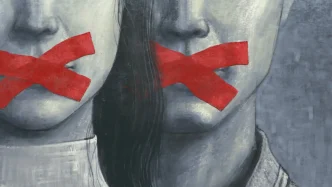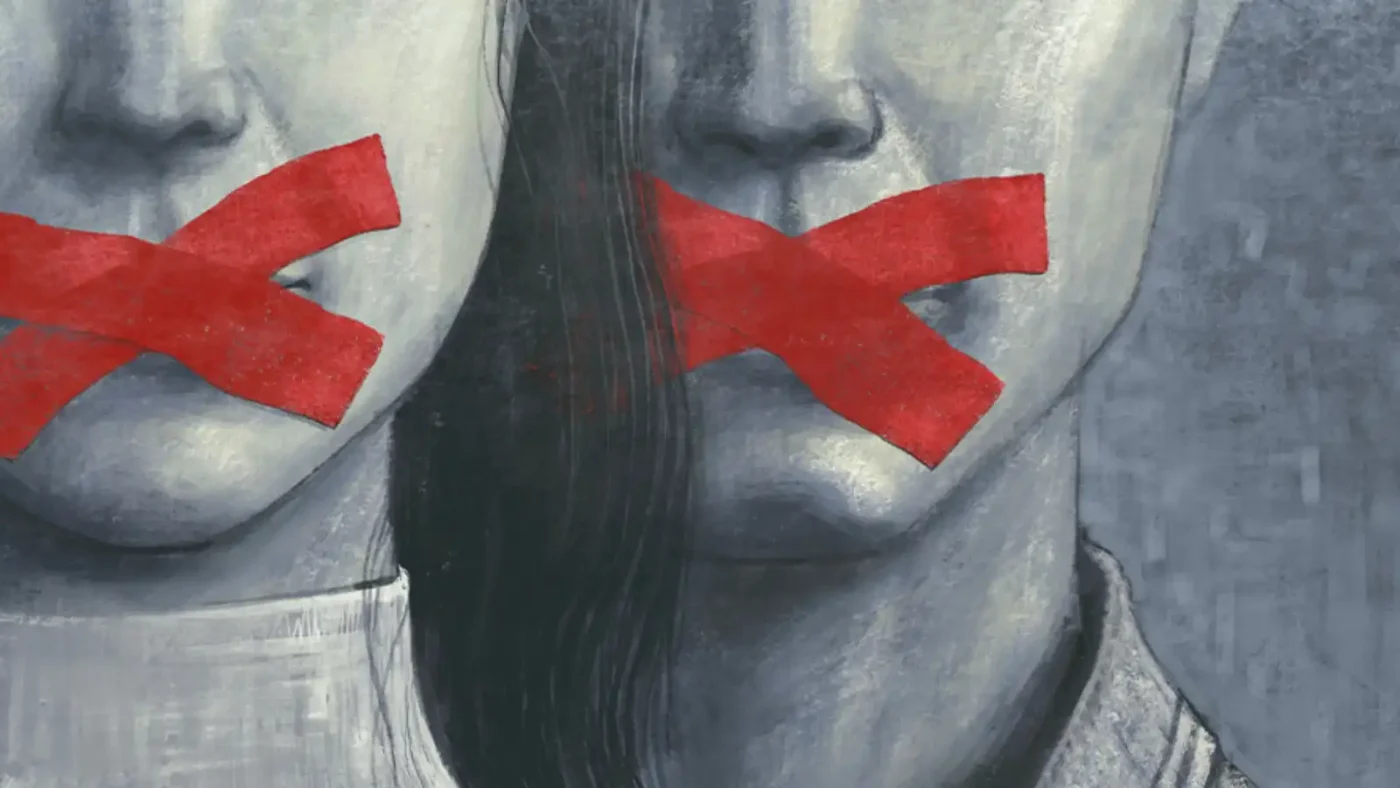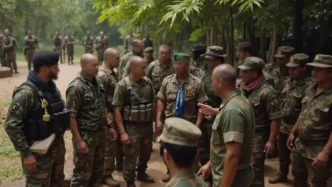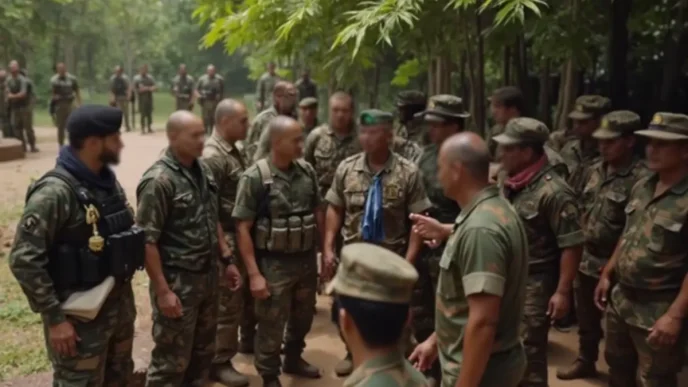A chilling new report has unveiled a disturbing pattern of violence and intimidation targeting legal professionals in the Philippines, particularly during the presidency of Rodrigo Duterte from 2016 to 2022. Titled “Black Robes, Red Targets,” the 80-page document, released on June 4, 2025, by Caravana Filipina in The Hague, details how the government allegedly employed repressive tactics to silence lawyers defending human rights and the rule of law. The findings, compiled by a team of 12 international legal experts, underscore a broader assault on democratic institutions, raising urgent questions about justice and accountability in the Southeast Asian nation.
A Systematic Campaign of Repression
The report, based on extensive desk research and fieldwork conducted in Metro Manila, the Cordillera region, and the provinces of Iloilo and Cebu in June 2024, paints a grim picture of the dangers faced by legal professionals. Between 2016 and 2023, at least 59 lawyers, judges, and other legal figures were subjected to threats, harassment, and, in many cases, lethal attacks. The victims often shared a common profile: they were long-standing members of lawyers’ unions or associations, dedicating their careers to representing marginalized communities, including victims of Duterte’s infamous war on drugs, religious and Indigenous minorities, farmers, and workers.
The fact-finding mission, which included in-depth interviews with 22 lawyers, three judges, and 13 relatives of slain legal professionals, identified a systematic pattern of repression. Tactics ranged from surveillance—such as unmarked vehicles parked outside homes or soldiers loitering near courtrooms—to public vilification through posters labeling lawyers as “Fake people’s lawyers” or “Lawyers of terrorists.” These acts of intimidation often escalated to “lawfare,” where legal tools like arbitrary search warrants or charges under the antiterrorism law were weaponized to harass targets. In the most severe cases, lawyers faced physical attacks or extrajudicial killings (EJKs).
One harrowing case cited in the report is that of lawyer Angelo Guillen, who was brutally stabbed with a screwdriver by two men in March 2021 while providing legal services to victims of the Tumandok massacre in Panay. Guillen survived after extensive surgery and nearly a month of hospitalization. Another tragic example is Benjamin Ramos, secretary general of the National Union of Peoples’ Lawyers in Negros, who was red-tagged in a police poster in April 2018 before being killed six months later in Kabankalan, Negros Occidental.
Personal Toll on Advocates
The report’s launch, held just kilometers from where former President Duterte is detained awaiting trial at the International Criminal Court (ICC) for charges of murder as a crime against humanity, carried a poignant resonance. Among those speaking at the event via videoconference was human rights lawyer Kristina Conti, who has represented victims of EJKs and their families. Conti herself became a target following Duterte’s transfer to ICC custody on March 11, 2025.
Reflecting on the moment of Duterte’s detention, Conti described it as feeling like “tectonic plates colliding.” She added, “It changed the landscape permanently, hopefully. It showed us that the rich and powerful could be arrested and detained on these kinds of violations.” Yet, her advocacy came at a steep personal cost. Conti recounted being belittled for her appearance, discredited as a lawyer, called a liar and stupid, and red-tagged as a supposed terrorist sympathizer—an attempt to cast doubt on her allegiances.
Conti’s experience is emblematic of the broader vilification faced by legal professionals who challenge powerful interests. The report notes that such attacks not only endanger individuals but also undermine the justice system, one of the core pillars of a democratic society. Lawyers, as defenders of the rule of law, play a critical role in resisting authoritarianism—a role that appears to have made them primary targets during Duterte’s tenure.
Failure of Accountability
Perhaps most alarming is the near-total lack of accountability for these crimes. With one exception, none of the killings of legal professionals documented in the report have resulted in court proceedings. The international delegation observed a consistent pattern of incomplete and inadequate investigations, suggesting that the Philippine government has repeatedly failed to meet its obligations to thoroughly probe unlawful or suspicious deaths and physical attacks.
This impunity extends beyond individual cases to reflect a systemic issue within the country’s justice apparatus. The report argues that the Duterte administration’s policies, particularly the violent war on drugs, took a devastating toll on the legal community and the broader administration of justice. By targeting those who sought to uphold human rights, the government effectively weakened the mechanisms designed to protect citizens from abuse.
Context of the War on Drugs
The violence against lawyers must be understood within the larger context of Duterte’s war on drugs, a campaign that drew international condemnation for its brutality. Official figures claim over 6,000 deaths during police operations between 2016 and 2022, though human rights groups estimate the true toll could be as high as 30,000, including extrajudicial killings by vigilantes and unidentified gunmen. Lawyers representing victims or challenging the legality of these operations often found themselves in the crosshairs, accused of defending criminals or obstructing state policy.
The report’s release near the ICC, where Duterte faces trial, serves as a reminder of the international stakes involved. While the ICC case focuses on murder as a crime against humanity, the findings of “Black Robes, Red Targets” suggest that the suppression of legal professionals was an integral part of the broader human rights crisis under Duterte’s leadership. If confirmed, this could provide additional evidence of a systematic effort to dismantle democratic checks and balances.
Steps Toward Protection
In response to these challenges, the report offers several recommendations to the Philippine government and other stakeholders. Among them is the creation of a special protection protocol for judges and prosecutors who face threats due to their rulings or prosecutions in sensitive cases. Such a measure, if implemented, could provide a critical safeguard for those on the front lines of justice.
There are signs of institutional efforts to address the issue. In March 2025, the Philippine Supreme Court appointed retired General Manuel Gaerlan as the first chief marshal of the newly established Office of the Judiciary Marshals. Tasked with ensuring the security of judges, court personnel, and staff, Gaerlan will be supported by three deputy marshals covering Luzon, Visayas, and Mindanao. While this development is a step forward, the report emphasizes that much more must be done to protect lawyers outside the judiciary and to address past wrongs through credible investigations.
Broader Implications for Democracy
The targeting of legal professionals in the Philippines is not an isolated phenomenon but part of a global trend where authoritarian regimes or illiberal policies seek to undermine the rule of law. Lawyers, as gatekeepers of justice, often become the first line of defense against state overreach. When they are silenced—whether through intimidation, harassment, or violence—the ripple effects are felt across society, eroding public trust in institutions and leaving vulnerable communities without advocates.
In the Philippine context, the findings of “Black Robes, Red Targets” raise critical questions about the legacy of Duterte’s presidency and the path forward under current leadership. While President Ferdinand Marcos Jr., who took office in 2022, has distanced himself from some of Duterte’s policies, human rights advocates argue that systemic issues, including impunity for past abuses, remain unresolved. The continued harassment of lawyers and activists suggests that the culture of repression has not fully dissipated.
International Attention and Local Realities
The international dimension of this issue cannot be overstated. The report’s launch in The Hague, alongside Duterte’s ICC trial, signals growing global scrutiny of the Philippines’ human rights record. For local advocates like Kristina Conti, this attention offers both hope and a reminder of the risks they face. The solidarity of international legal experts, as demonstrated by the Caravana Filipina mission, provides a platform to amplify their voices—but it cannot shield them from threats on the ground.
Moreover, the report’s focus on contributing to a “growing body of evidence” highlights its potential role in future accountability mechanisms, whether through domestic reforms or international tribunals. If its findings are corroborated by further investigations, they could strengthen the case for systemic human rights violations under Duterte’s watch, potentially influencing both legal outcomes and public opinion.
Looking Ahead
As the Philippines grapples with the fallout of this dark chapter, the bravery of legal professionals like Angelo Guillen, Benjamin Ramos, and Kristina Conti stands as a testament to the resilience of those who defend justice against overwhelming odds. Yet, their stories also serve as a sobering warning of the costs of silence and inaction. With investigations stalled and impunity entrenched, the question remains: will the government take meaningful steps to protect its defenders of the law, or will the red targets on their backs remain?
















